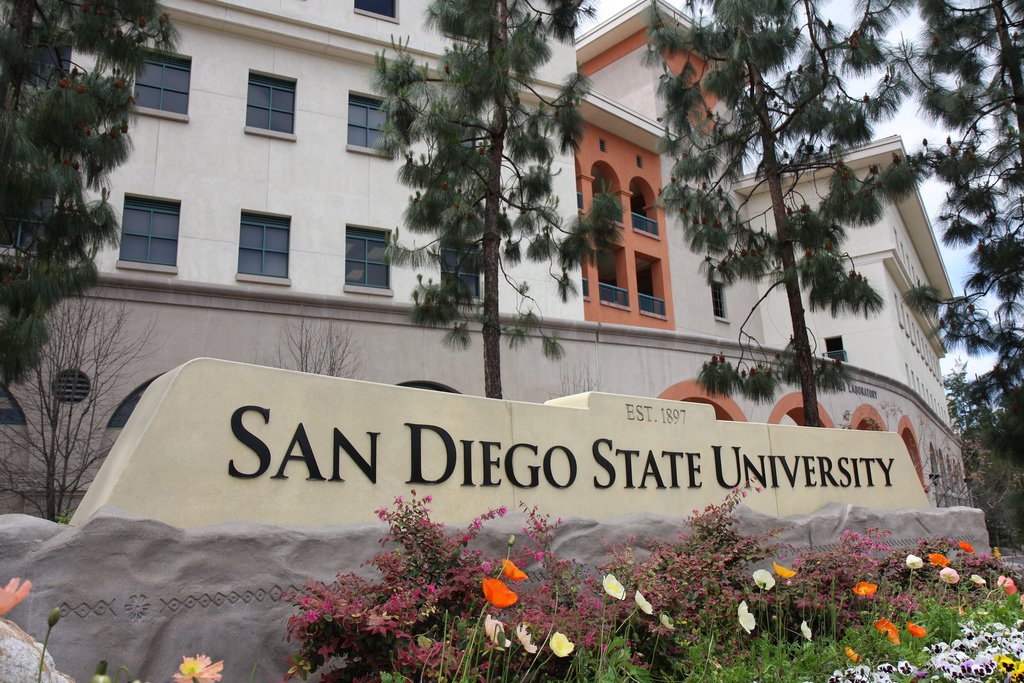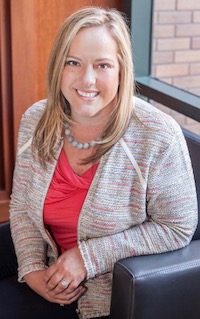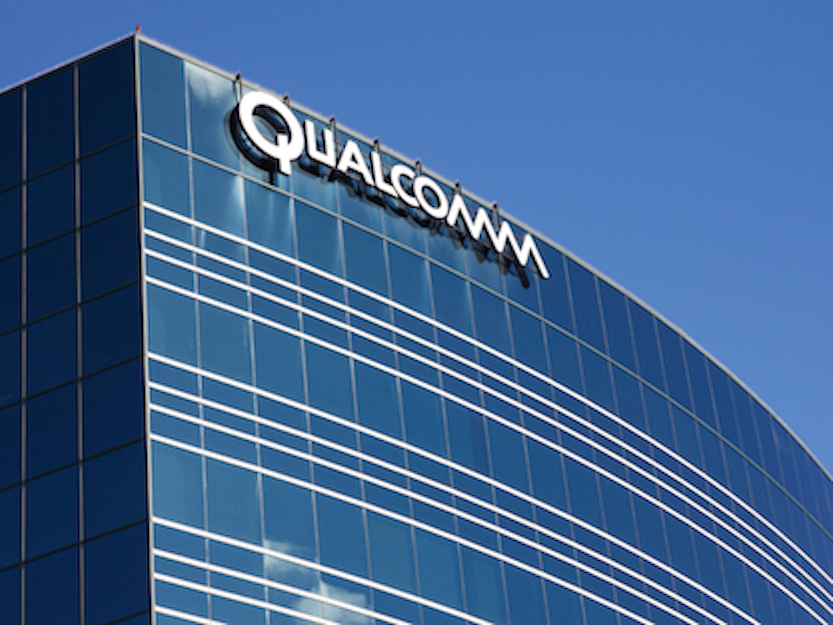Daily Business Report-Nov. 6, 2017
Qualcomm confirmed that it had received the unsolicited offer.
Broadcom Offers $130 Billion
to Purchase Qualcomm
Broadcom submitted a $130 billion offer today to purchase Qualcomm, saying the combined company would be a “global communications leader.”
The proposal was for $60 in cash and $10 in Broadcom stock for all outstanding shares of the San Diego-based wireless technology pioneer. The transaction would be valued at $130 billion.
“Our proposal provides Qualcomm stockholders with a substantial and immediate premium in cash for their shares, as well as the opportunity to participate in the upside potential of the combined company,” said Hock Tan, president and CEO of Broadcom. “This complementary transaction will position the combined company as a global communications leader with an impressive portfolio of technologies and products.”
Qualcomm confirmed that it had received the unsolicited offer, which was announced half an hour before financial markets opened in New York.
“The Qualcomm board of directors, in consultation with its financial and legal advisors, will assess the proposal in order to pursue the course of action that is in the best interests of Qualcomm shareholders,” the company said in a statement. “Qualcomm will have no further comment until its board of directors has completed its review.”
Bloomberg reported that Qualcomm views the offer as undervalued and will recommend that shareholders reject the takeover bid.
Qualcomm’s stock was up over 3 percent at nearly $64 in early trading in New York, but remained under its 52-week high of $72.
The company promised that Qualcomm employees would have “outstanding opportunities for leadership and growth” in Broadcom, and argued that “as a result of enhanced scale, reach and financial flexibility, the combined company will benefit from the ability to accelerate innovation and deliver more advanced semiconductor solutions to its broad global customer base.”
Qualcomm has been embroiled in a licensing battle with Apple and antitrust complaints from foreign governments that have depressed sales and earnings over the past year.
Buying Qualcomm would make Broadcom the third-largest chip maker, behind Intel and Samsung, according to Bloomberg. The combined business would be the primary provider of components needed to build each of the more than a billion smartphones sold every year.
___________________

SDSU and USD Form Partnership with
Law Firm to Assist Student Entrepreneurs
San Diego State University, University of San Diego School of Law and international law firm Duane Morris LLP have launched a program that pairs SDSU student entrepreneurs with USD law students and Duane Morris attorneys to offer legal assistance for start-up businesses. It is the first business school/law school/legal firm partnership of its type in the region to combine student learning experiences with those of practicing attorneys.
Students from SDSU’s Lavin Entrepreneur Center at the Fowler College of Business will work with law students from the Entrepreneurship Clinic at USD School of Law to obtain legal counsel as they establish start-up businesses. Licensed attorneys from Duane Morris will oversee each transaction and provide transactional support for each start-up endeavor.
The program started Friday.
“With the strength of the entrepreneurship community in San Diego, it just made sense for us to combine the assets of our three respective organizations to offer students the most well-rounded entrepreneurial education available to jumpstart their businesses,” said Lance Nail, dean of the Fowler College of Business. “The support and participation of Duane Morris is a critical element in making this program a success. Collaboration between the academic and business communities fosters a productive environment where startups can thrive.”
The program will feature an annual Duane Morris seminar to teach students in the Lavin Entrepreneurship Program about the common legal pitfalls of startups. Additionally, Duane Morris will host legal clinics in its San Diego office several times a year to help students handle any legal issues that may arise, as well as offering general legal advice on their business matters.
“As a longtime board member of the Lavin Center, I felt this was a tremendous opportunity for us to support start-ups as a firm and individually,” said Duane Morris partner Michelle Hon Donovan. “Not only is it a win for the students involved, but it allows our attorneys the chance to assist these emerging ventures, which will have an incredibly positive impact on the San Diego community.”
Each SDSU student entrepreneur will be paired up with a USD law student at the USD School of Law Entrepreneurship Clinic who will provide legal services under the supervision on an experienced attorney. Duane Morris will also take on certain cases on a pro bono basis.
___________________

San Diego’s Hera Labs Wins SBA
$50,000 Growth Accelerator Fund Grant
San Diego nonprofit business accelerator Hera Labs for the third straight year has won an SBA Growth Accelerator Fund grant of $50,000 and is the only organization in California to have been awarded the designation this year. Though Hera Labs is industry agnostic (while some of the recipients focus on tech or manufacturing, for example), Hera Labs is focused on helping women-led businesses launch and grow.
The accelerators represent a broad set of industries and sectors from manufacturing to tech start-ups to farming with a diversified range of demographic groups. In accepting these funds, the accelerators will be committing to bi-annual reporting for one year and will be required to report metrics on jobs created, funds raised, startups launched and corporate sponsors obtained among other pieces of information. These metrics will allow the SBA to maintain a useful dataset of accelerators and their impact, and to develop long-term relationships with the startups and constituents in these innovative and entrepreneurial communities.
Winners were selected through a two tier review panel process with experts in entrepreneurship, investing and business plans both inside and out of the federal government.
Hera (Helping Entrepreneurs Rapidly Accelerate)
___________________
New Medical Tourism
Initiative Launched in San Diego
A new organization called DestinationCare San Diego was launched today to market the San Diego region’s health care and life sciences industries to patients, families and providers outside of San Diego.
Mayor Kevin Faulconer, Malin Burnham and San Diego Tourism Authority President & CEO Joe Terzi unveiled the initiative at the Worth Health Summit at The Lodge at Torrey Pines where a panel discussed how San Diego is primed to become a health care destination. The Worth Group, an integrated media company, chose San Diego because of its burgeoning economy around life sciences, biotechnology and medicine.
“We have some of the finest healthcare institutions and cutting-edge research happening right here in San Diego,” Faulconer said. “We also have some of the best weather and attractions in America for folks to relax and recuperate. With DestinationCare, we want to make San Diego a premiere destination for people seeking better health care options.”
DestinationCare San Diego is governed by a Board of Directors chaired by Burnham and includes representatives from the San Diego Regional EDC, the San Diego Tourism Authority, San Diego Health Connect, and Tom Gehring, interim executive director and former executive director and CEO of the San Diego County Medical Society.
___________________
Coffman Engineers Announces
Merger with Hope-Amundson
Coffman Engineers Inc. and San Diego-based structural engineering firm Hope-Amundson Inc. have merged to become Coffman. The merger was finalized on Oct. 27.
“It was obvious that both firm cultures align closely and that was something very important to us,” said Chuck Hope, principal of Hope-Amundson.
The merger expands Coffman’s multidiscipline engineering service offerings in Southern California by adding structural engineering to Coffman’s San Diego office. Hope-Amundson’s 33 employees have joined the San Diego office which now has 40 employees and the largest structural department at Coffman. The Hope-Amundson staff will remain in their current office and eventually join Coffman’s San Diego staff in a single office location.
Hope-Amundson’s Orange County office has four structural engineers and expands Coffman’s reach in Southern California. It will eventually offer multidiscipline engineering services.
Chuck Hope and Jim Amundson from Hope-Amundson will join Coffman as principals. They join current general manager Scott Twele of Coffman’s San Diego office.
___________________
General Atomics to Build Arresting
Gear Test Assets for the Navy
ExecutiveBiz
General Atomics has secured an $11.2 million contract modification from the U.S. Navy to produce test assets of an arresting gear system the company designed to manage deceleration of carrier-borne aircraft.
The company will provide Advanced Arresting Gear test articles for the Navy Aircraft Launch and Recovery Equipment Program Office’s testing and evaluation efforts at an AAG System runway-assisted landing site, the Defense Department said.
The service branch obligated $7.3 million in fiscal 2018 research, development, test and evaluation funds at the time of award.
AAG is built with energy-absorbing water turbines connected to a large induction motor designed to control arresting forces.
___________________
Study Asks: Can Organisms Use Radio
Frequencies to Sense Surroundings?
A new project by researchers at the University of California San Diego will investigate a biological mystery that has so far gone unsolved: can organisms use radio frequencies to sense surroundings?
Radio frequency waves (RF) are electromagnetic waves between the frequencies of 3 kilohertz to 300 gigahertz, used in radio, cellphones, wi-fi, radar, GPS, and many other systems. While humans have used RF technology to communicate for over 100 years, no living organism has ever been observed using RF to communicate without technology. But recently there have been clues that this may in fact occur.
“Researchers in Europe were able to demonstrate that biological cells produce RF in the gigahertz range, which is what your radio or your cellphone works at,” said Scripps Institution of Oceanography marine biologist Dimitri Deheyn, the project’s lead investigator. “Those discoveries were made in cells that are cultured in petri dishes, and so the big question that the RadioBio program wants to assess and that we will try to answer through this grant is: Are such frequencies biologically relevant? Can we measure them from organisms?” Deheyn has been awarded a $3.3 million grant from the federal Defense Advanced Research Projects Agency (DARPA) to find out.



